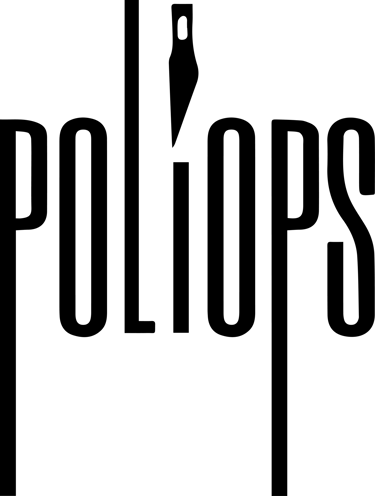Memories
The mural celebrates Giovanni Petronio Russo and Carmelo Salanitro, two symbolic figures of Adrano:
Russo, inventor and artist, represents ingenuity and creativity; Salanitro, teacher and anti-fascist, embodies courage and freedom of thought.
Through intense gazes and contrasts of light, the work unites memory and future, transforming the wall into a place of reflection and collective identity. Depicting two figures such as Giovanni Petronio Russo and Carmelo Salanitro on a wall is not merely an artistic act, but a gesture of reconciliation between memory and the present — a declaration of continuity between who we are and what we choose to remember.
Both represent two different yet complementary forms of human resistance:
Russo, with his ingenuity and thirst for progress, embodies the creative strength of intelligence — the ability to dream and build despite the limits of his time.
Salanitro, with his moral steadfastness and sacrifice, embodies ethical strength — the courage to remain faithful to one’s ideals even in the face of persecution.
Bringing them together in a single work means uniting mind and conscience, technique and truth, invention and freedom. The wall, once a simple urban surface, becomes a collective skin, a living testimony in which the community can see itself, recognize itself, and question itself.
Depicting these two faces also restores dignity to what history tends to forget: men who fought not for power or glory, but for universal principles — freedom, knowledge, and justice.
In this sense, the mural does not only celebrate two lives but a worldview — one in which knowledge and courage are tools to improve humanity.
It is a silent yet powerful invitation: to never forget, to create with awareness, and to live with responsibility.
Located on Via Fratelli Cervi, in the city of Adrano 2018.
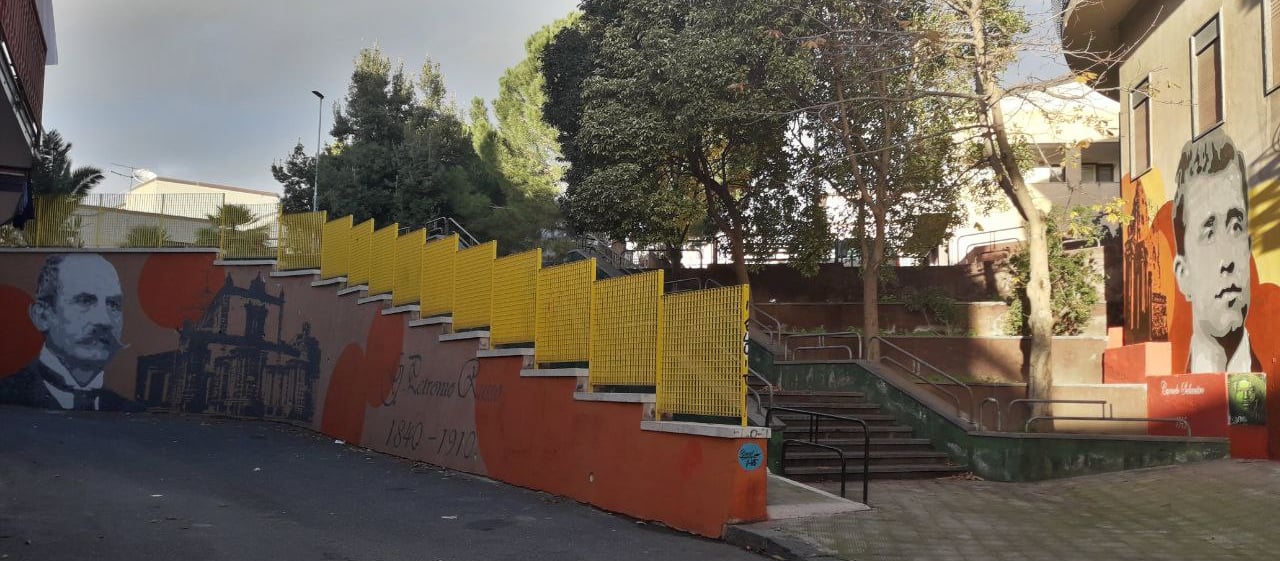

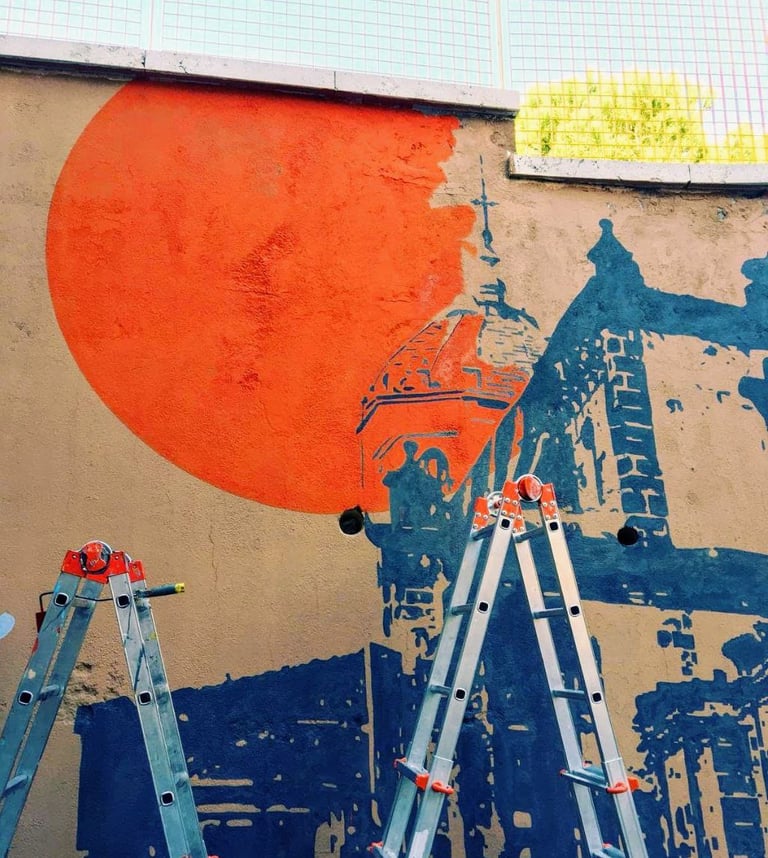


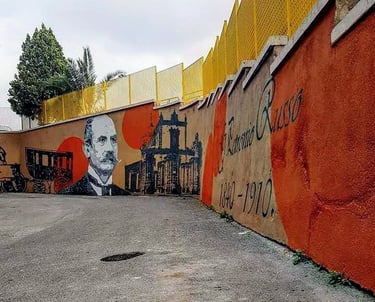


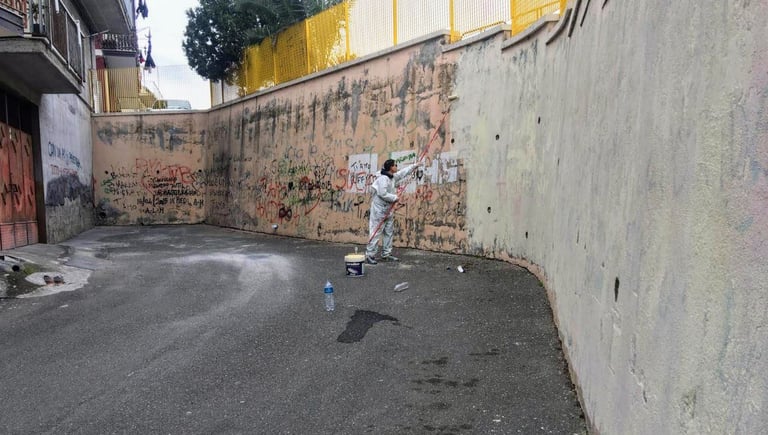

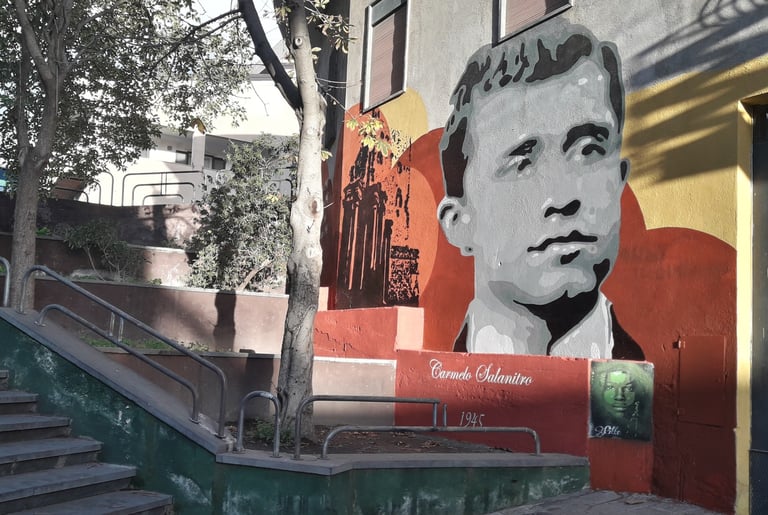

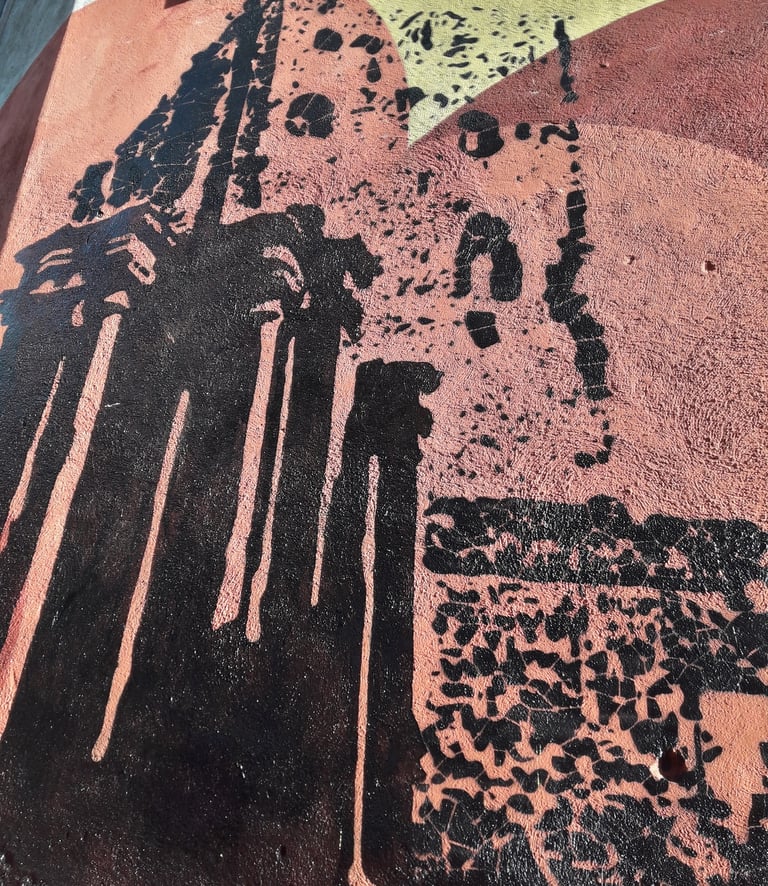

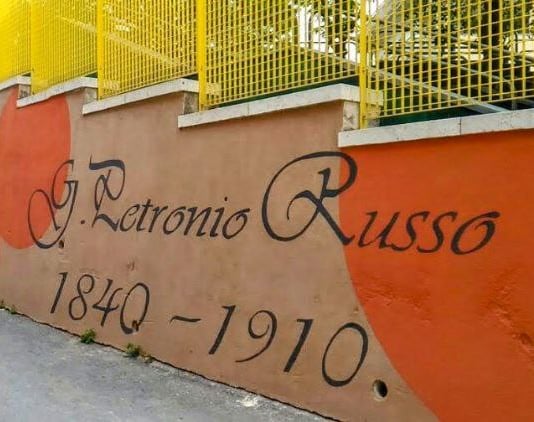

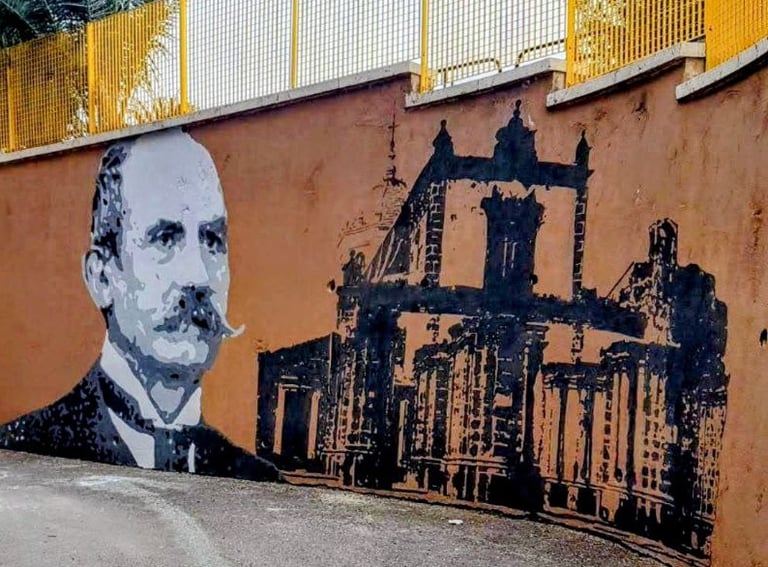

Artistic Projects
Under the Same Sky
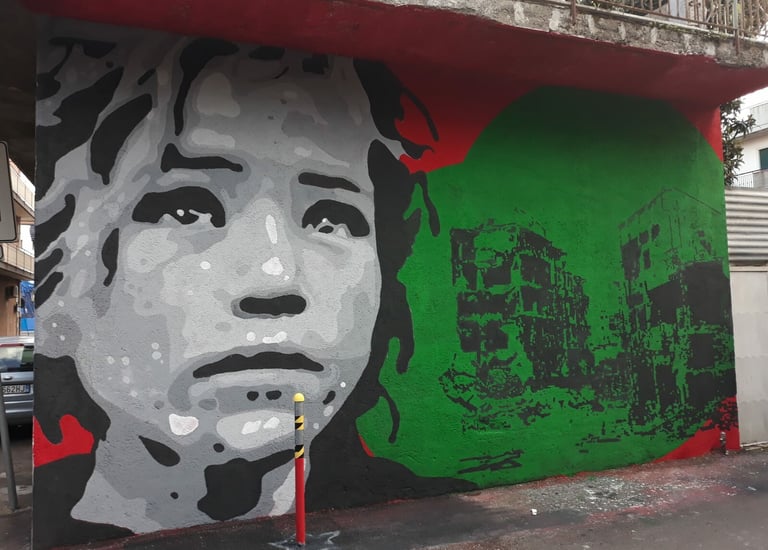

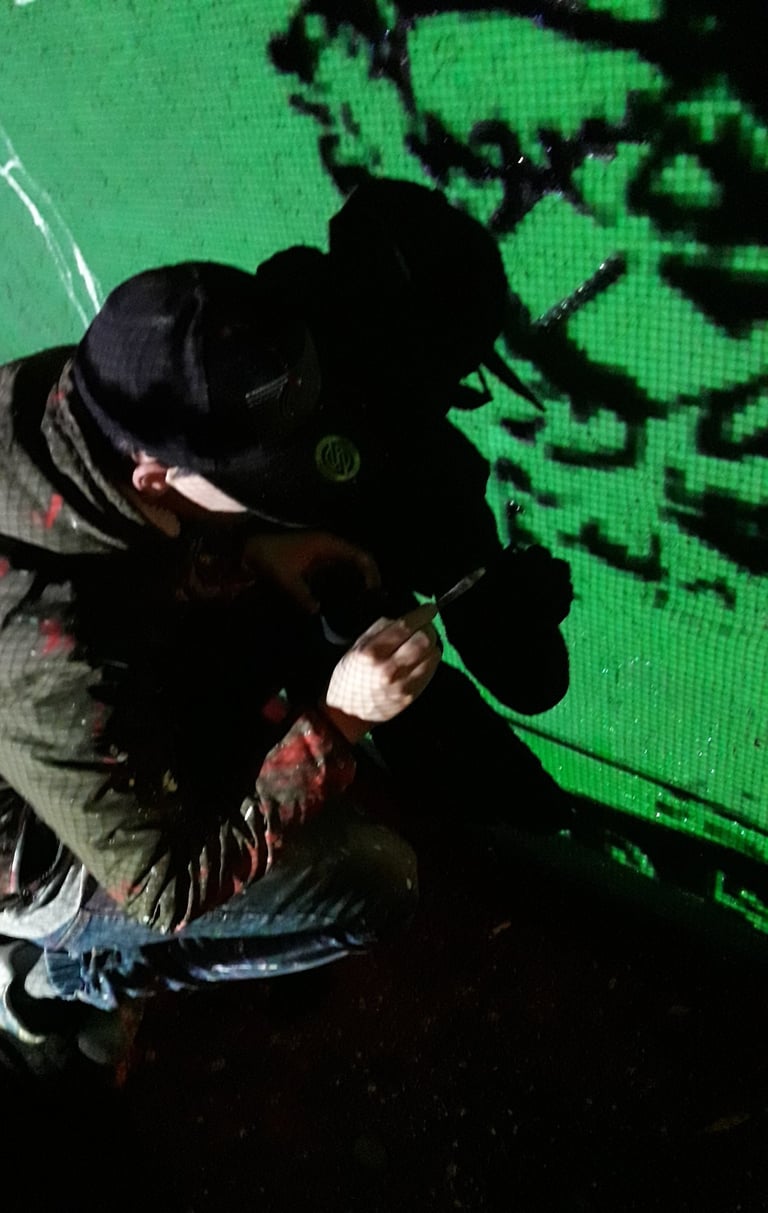

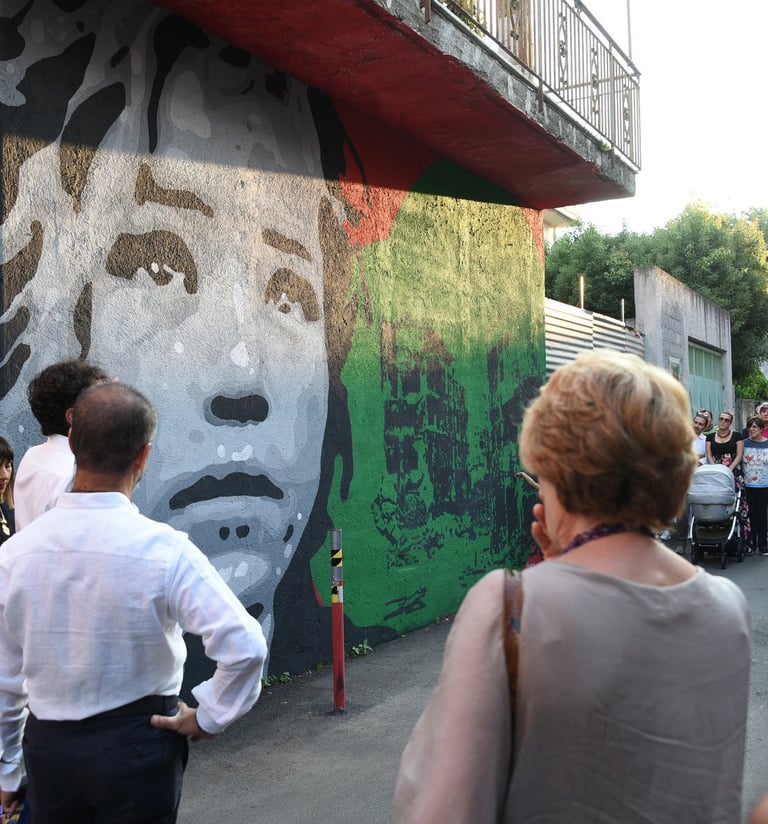

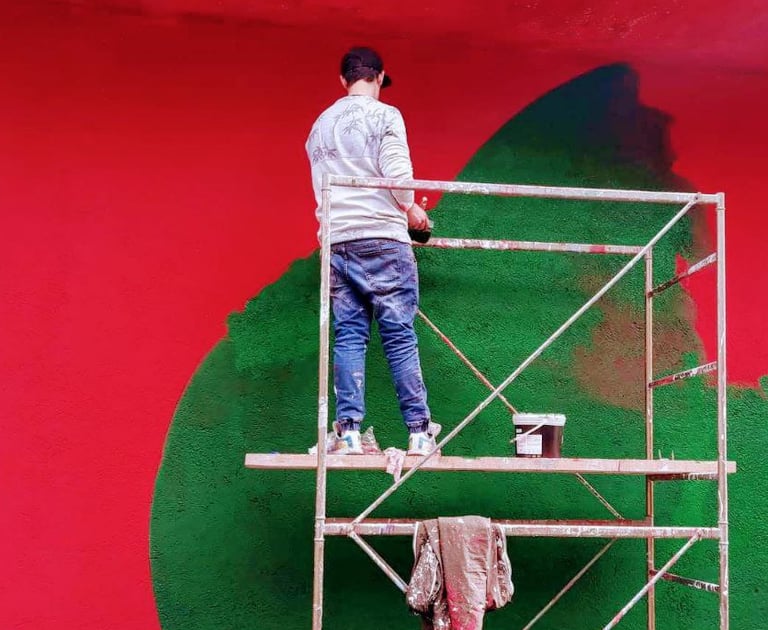

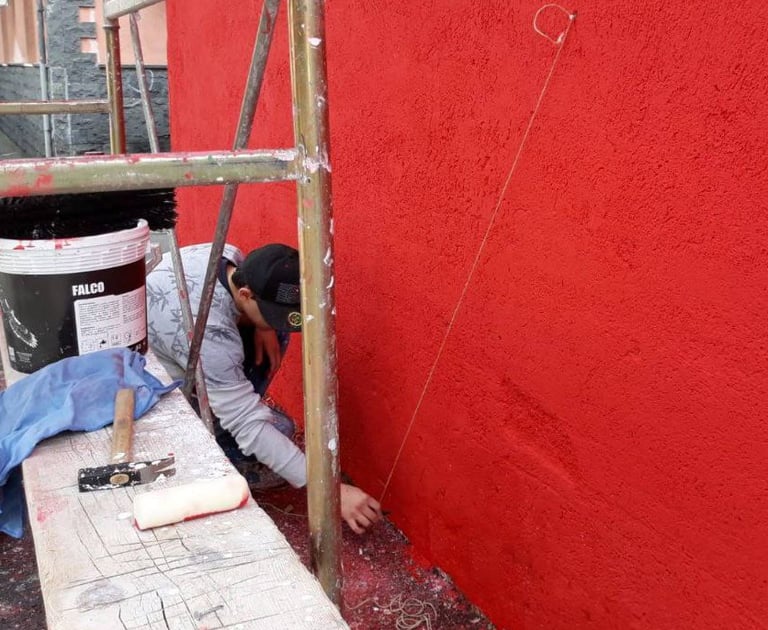

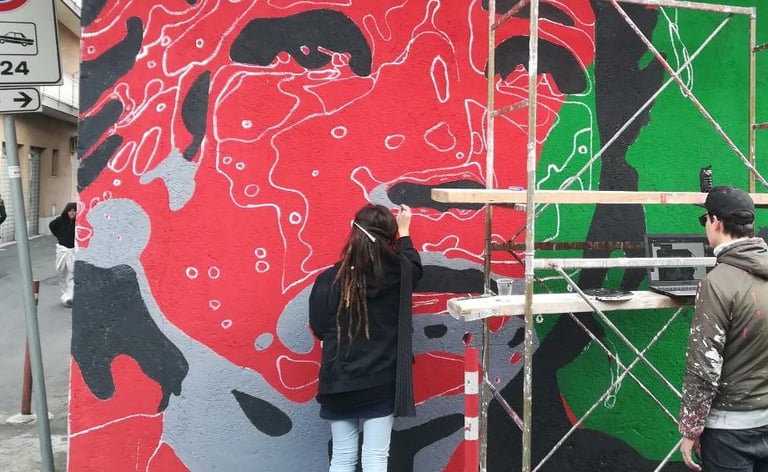

This work is dedicated to the conflict in Syria — one of the longest and most painful wars of our time.
Through a silent yet powerful language, it pays tribute to the civilian victims: those who have lost their lives, their homes, their families, and those who continue to live among ruins and fear.
Since 2011, the war in Syria has caused over 580,000 deaths, including more than 300,000 civilians, according to United Nations estimates.
Behind these numbers lie stories, faces, and broken dreams — a wounded humanity that art can still remember and transform into awareness.
This work does not seek to judge, but to bear witness, to keep memory alive, and to remind us that peace, freedom, and human dignity remain the only true victories.
Event “Vanedda Street Art”, curated by Clara Pennisi, Salvo Cosentino e Luigi Torrisi. City of Valverde, 2018.
One Breath
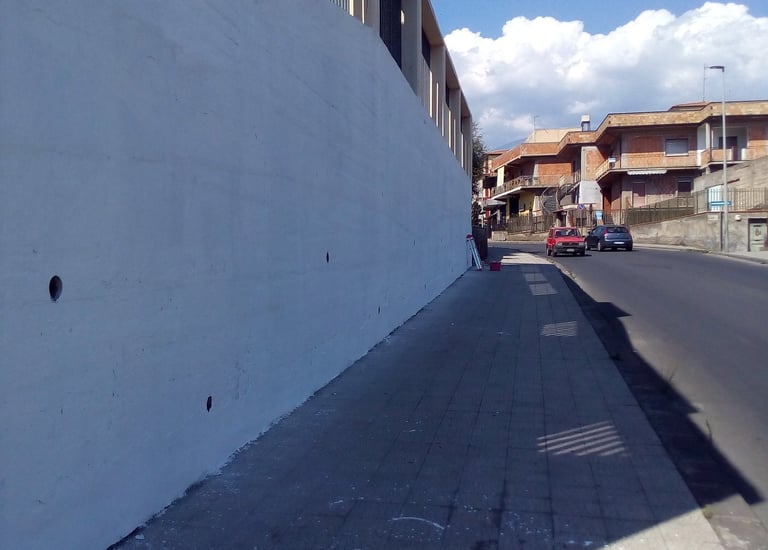

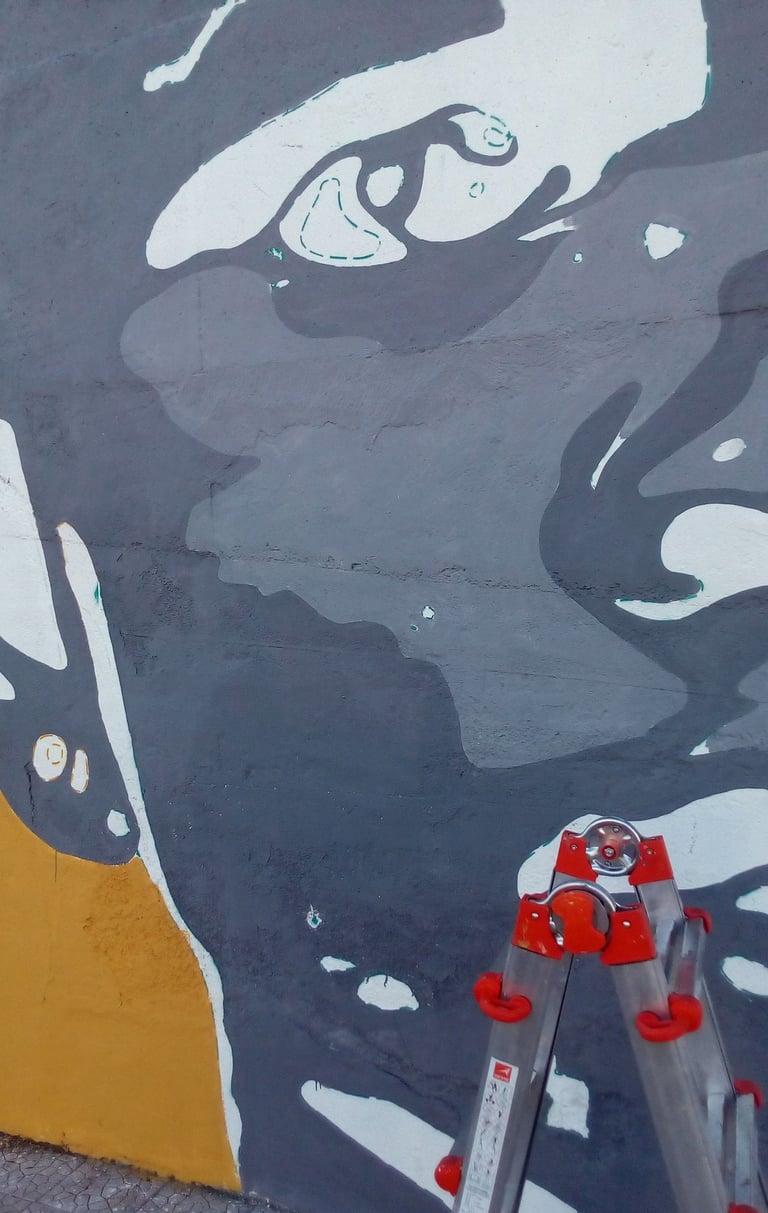

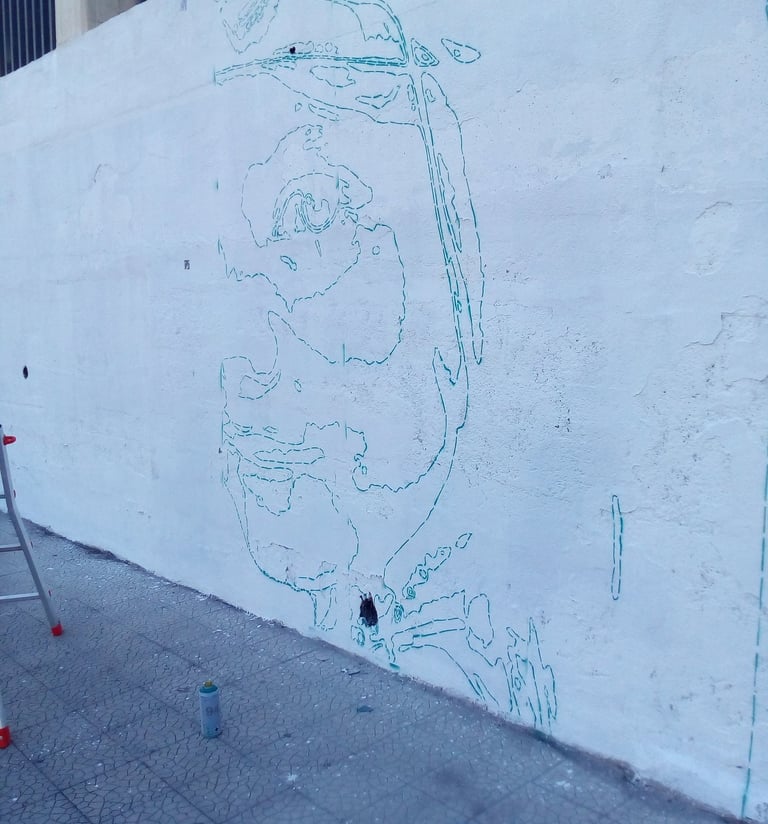

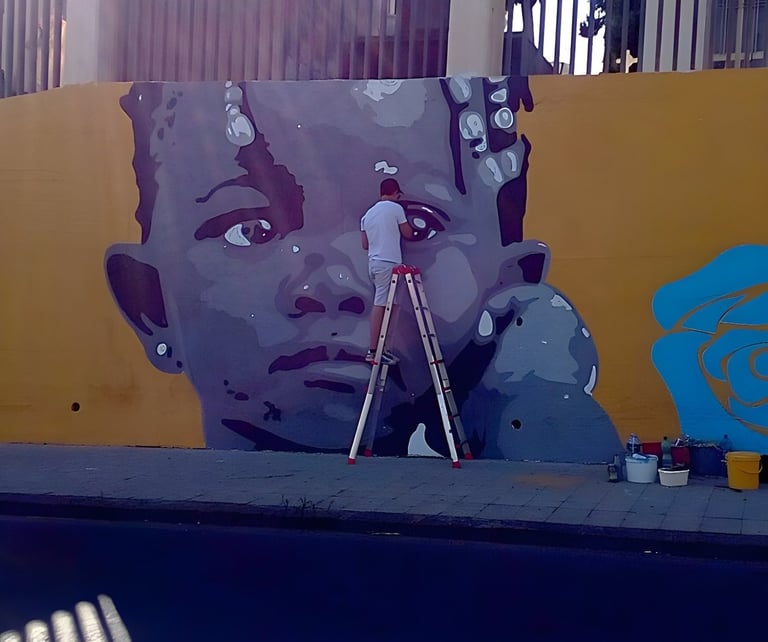

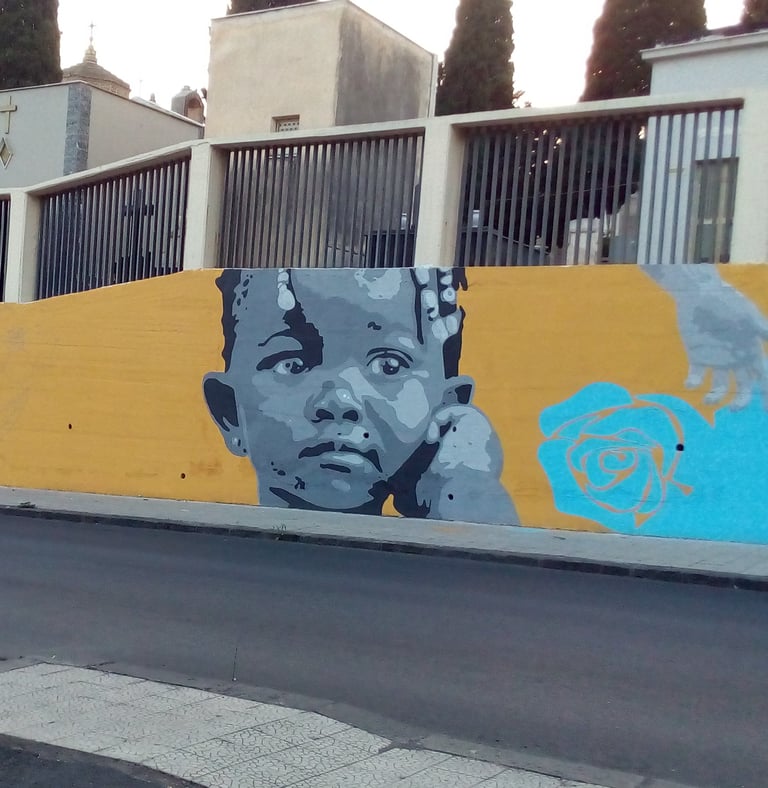

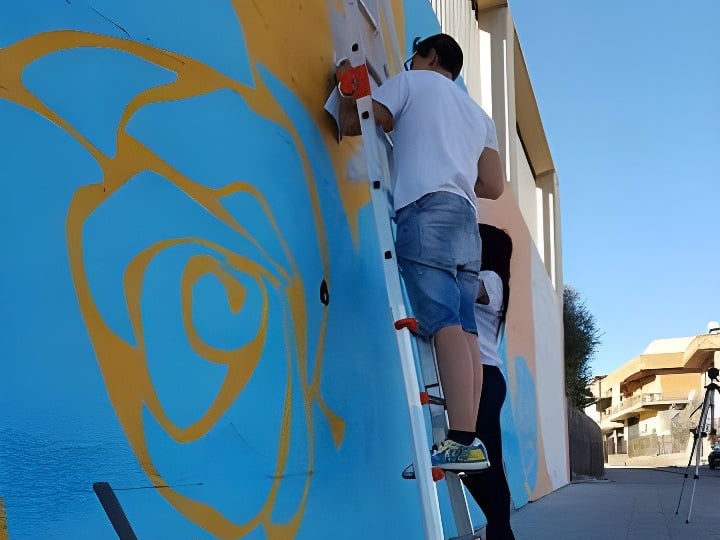

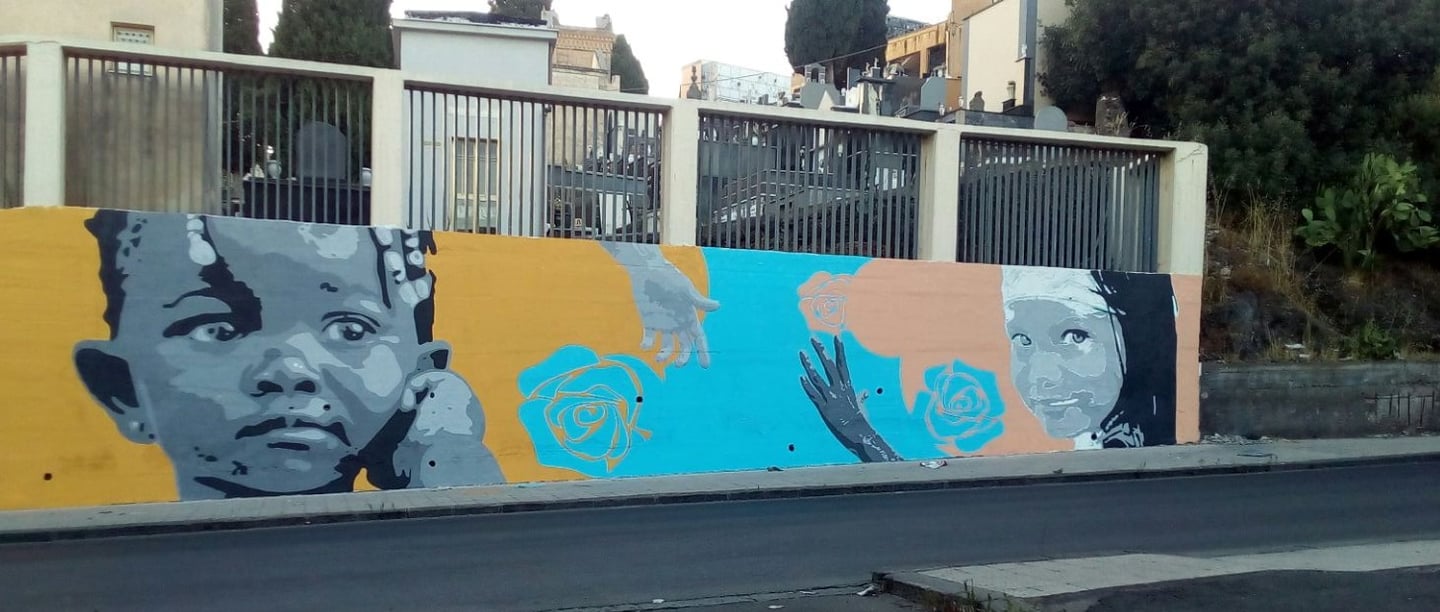

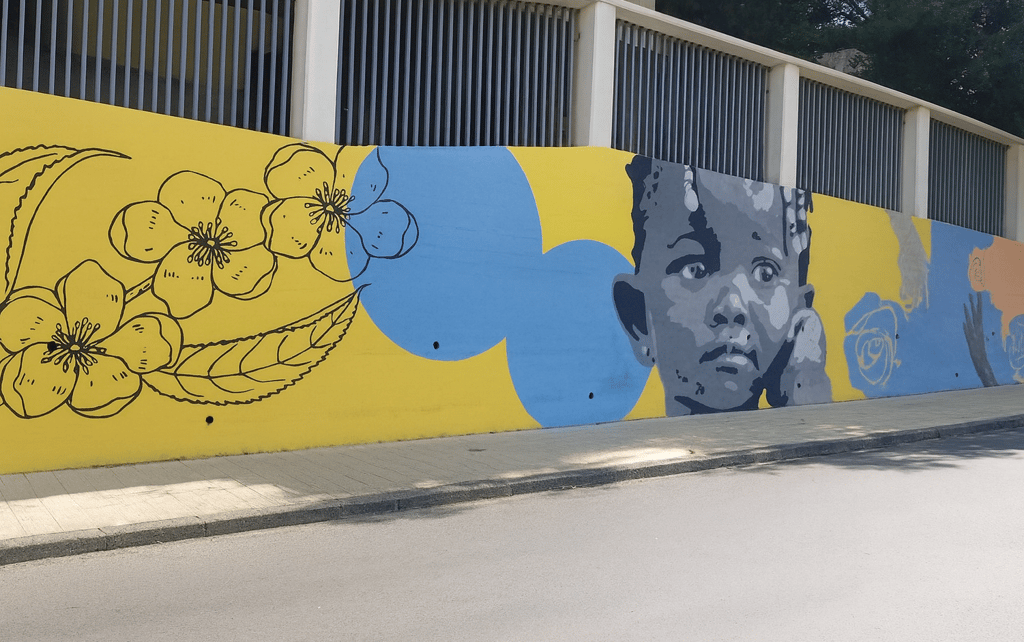

This mural was born as a silent cry against all forms of racism, discrimination, and indifference. Through an interweaving of faces, colors, and universal symbols, the work celebrates diversity as the vital force of humanity. Each face, different in origin and tone, shares the same gaze and the same breath — that of dignity, freedom, and the right to exist without fear.
The colors blend without borders, forming a single skin that embraces all others. The hands reaching toward each other symbolize encounter, solidarity, and the possibility of building together a fairer world. The mural invites us to look beyond appearances, to recognize the human being before the color, the language, or the culture. Against racism, art becomes memory, voice, and bridge — a space where differences do not divide, but transform into harmony.
The work was commissioned by the Municipality of Biancavilla as a public message of inclusion and mutual respect. However, it was never officially inaugurated by the same authorities who commissioned it — a fact that symbolically amplifies its meaning: reminding us that the fight against racism is not expressed only through words, but through gestures, presence, and recognition.
Location: Biancavilla, Italy – 2017
Black Gold, White Thirst
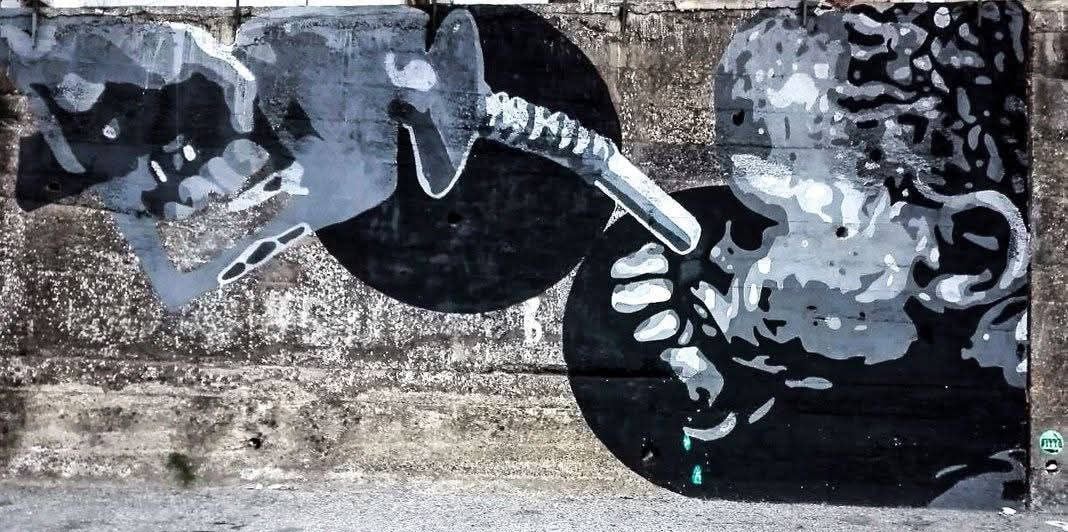

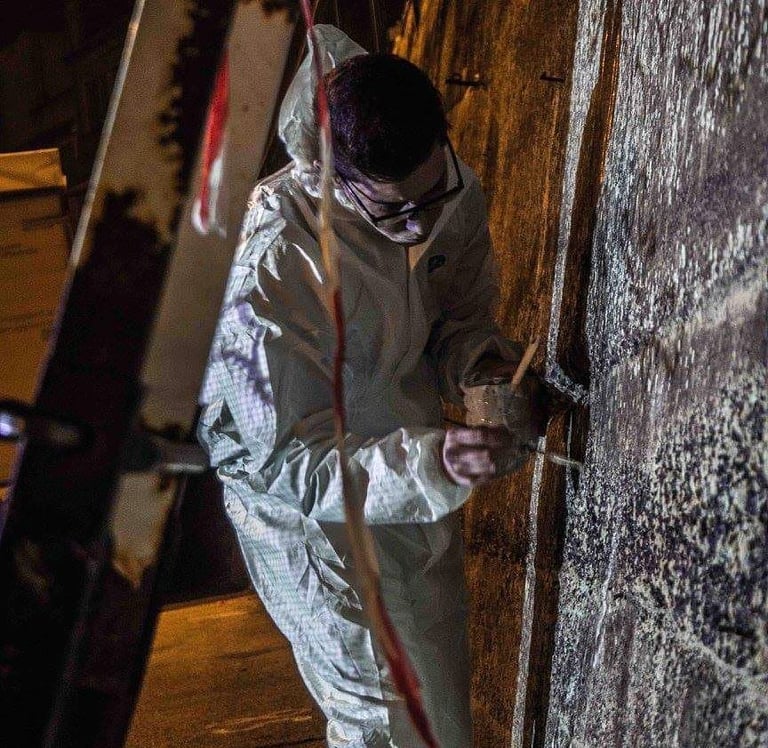

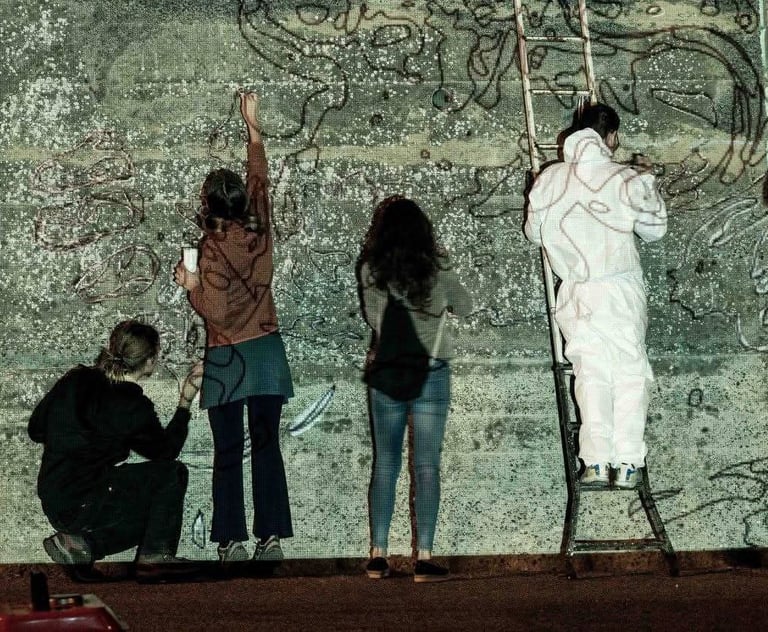

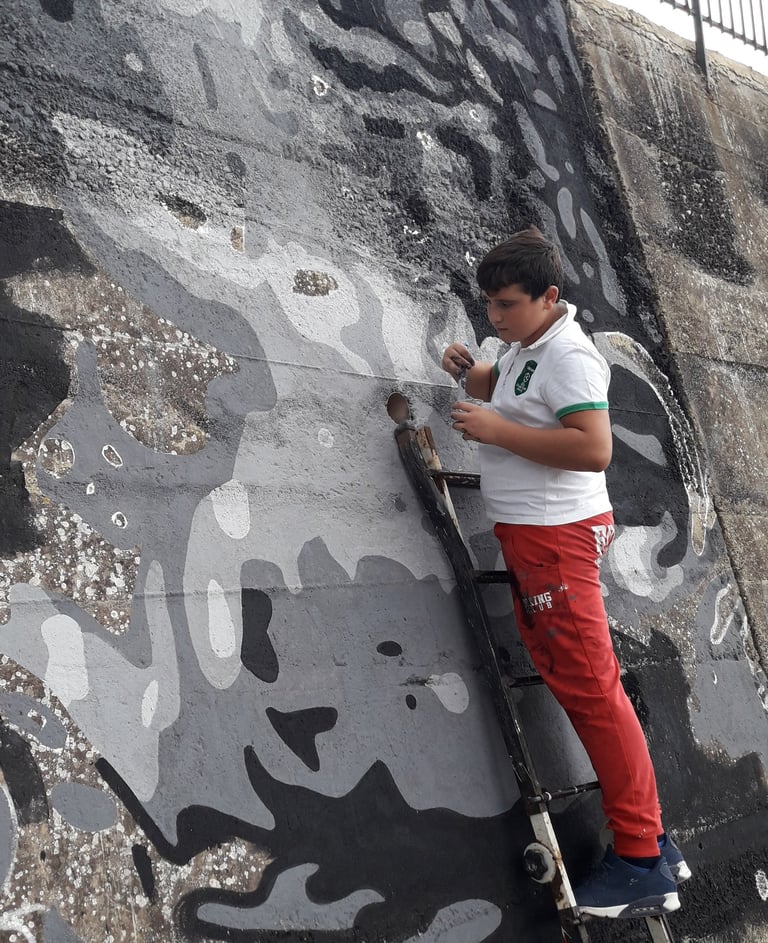

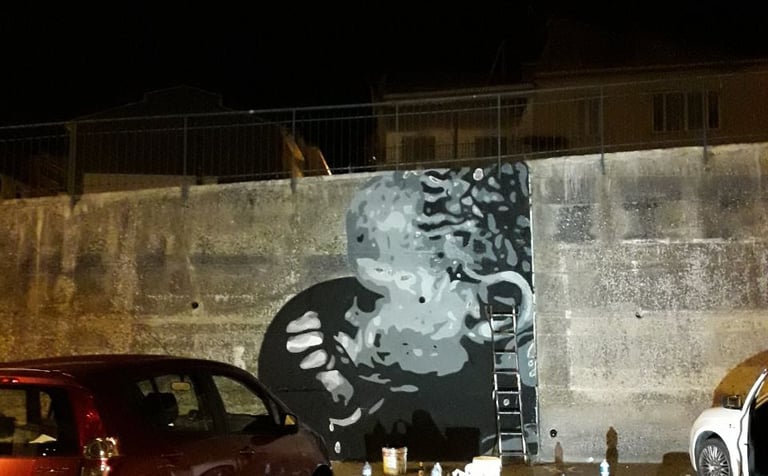

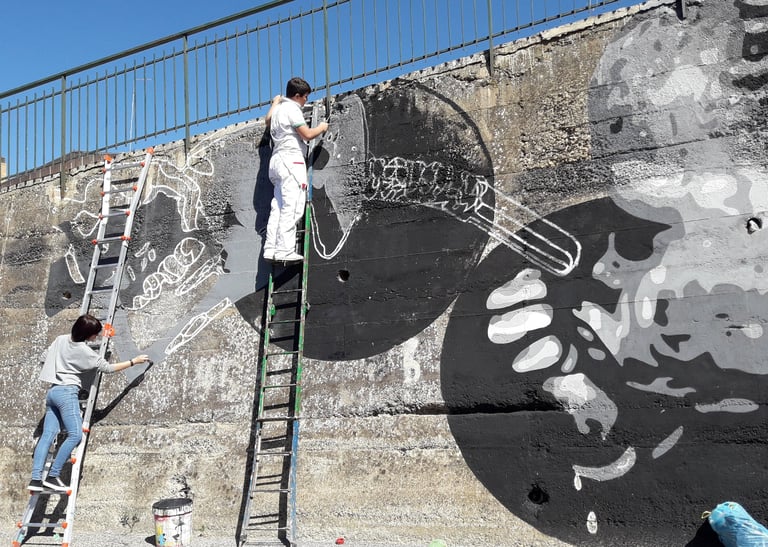

In many regions of Africa, water is worth less than oil.
While multinational companies extract millions of barrels of crude every day, millions of people have no access to drinking water — a fundamental human right.
According to the United Nations (UNICEF and WHO, 2024):
1 in 3 people in Sub-Saharan Africa lack access to safe water.
400 million people live without basic sanitation services.
Every day, over 1,000 children die from diseases linked to contaminated water.
The continent exports more than 7 million barrels of oil per day, generating enormous profits that are rarely reinvested in water or health infrastructure.
